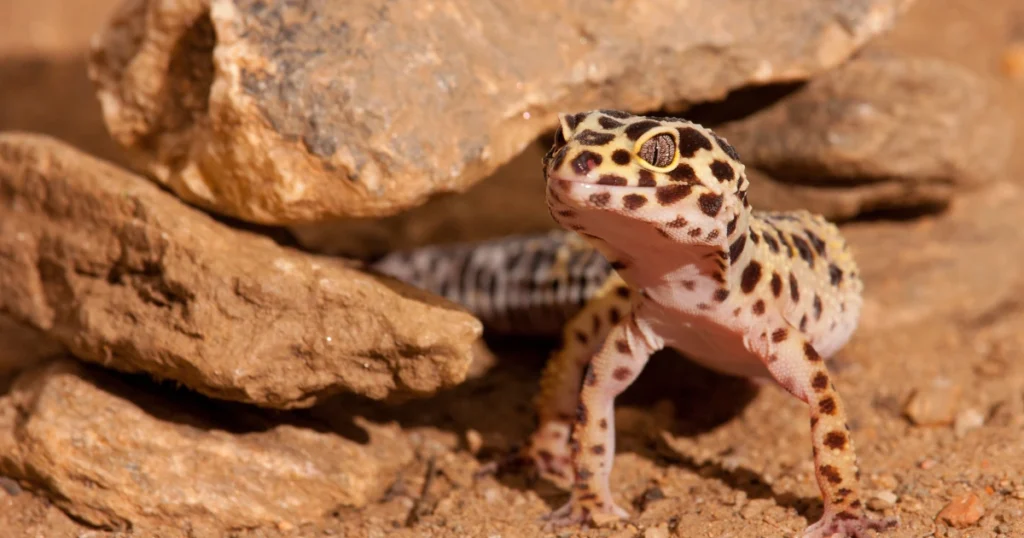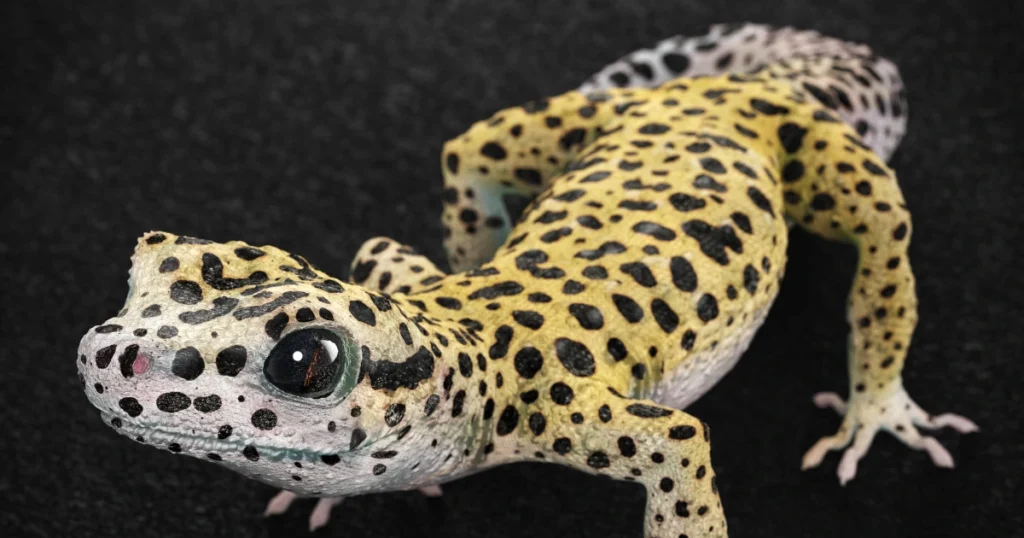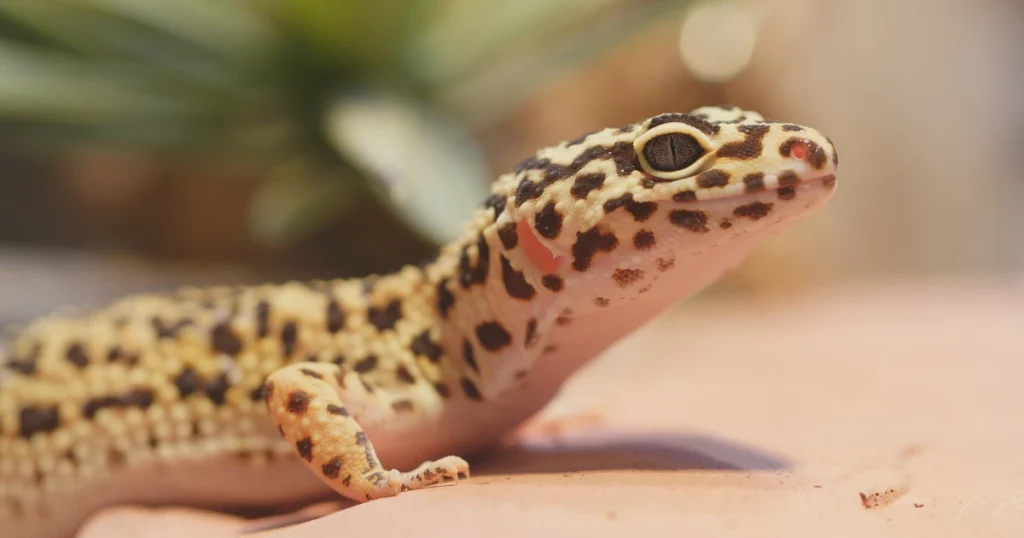
As a fellow leopard gecko owner, I know firsthand the joys and challenges that come with caring for these fascinating reptiles. One of the most important aspects of their care is providing a nutritious and varied diet, which often includes earthworms.
In this comprehensive guide, I’ll share my experiences, tips, and insights on feeding leopard geckos earthworms, addressing common questions and concerns along the way.
Why Feed Leopard Geckos Earthworms?
Leopard geckos are insectivores, meaning they primarily feed on insects and other small invertebrates in the wild. Earthworms make an excellent addition to their diet for several reasons:
- Nutritional Value: Earthworms are packed with essential nutrients like protein, calcium, and various vitamins and minerals.
- Hydration: Earthworms have a high water content, which can help keep your leopard gecko hydrated.
- Variety: Providing a varied diet is crucial for your gecko’s health and well-being, and earthworms offer a different texture and flavor from other feeder insects.
- Natural Behavior: In their natural habitat, leopard geckos would likely encounter and consume earthworms, making them a biologically appropriate food source.
Common Questions and Concerns
Before delving into the specifics of feeding earthworms to your leopard gecko, let’s address some common questions and concerns:
Are Earthworms Safe for Leopard Geckos?
Yes, earthworms are generally safe for leopard geckos to consume. However, it’s crucial to source your earthworms from a reputable supplier or breed them yourself to ensure they haven’t been exposed to pesticides or other harmful chemicals.
Can Earthworms Carry Parasites?
Like any live feeder insect, there is a risk of parasites with earthworms. To minimize this risk, it’s important to maintain proper hygiene when handling and storing earthworms, and to avoid feeding wild-caught worms to your gecko.
Will Earthworms Cause Impaction?
Impaction, or a blocked digestive tract, is a concern for leopard geckos when fed inappropriate prey items. However, earthworms are soft-bodied and unlikely to cause impaction when fed in moderation as part of a balanced diet.

Selecting and Preparing Earthworms
Now that we’ve addressed some common concerns let’s dive into the process of selecting and preparing earthworms for your leopard gecko.
Sourcing Earthworms
There are several options for sourcing earthworms:
- Pet Store or Online Retailers: Many pet stores and online retailers offer earthworms specifically for reptile feeders.
- Bait Shops: Bait shops often sell earthworms for fishing, which can also be used as feeder worms for your gecko.
- Worm Farms: You can set up your own worm farm or compost bin to breed and harvest earthworms at home.
Regardless of the source, ensure that the earthworms are healthy, free of pesticides or other contaminants, and appropriately sized for your gecko.
Preparing Earthworms
Before offering earthworms to your leopard gecko, there are a few steps you should take to prepare them:
- Rinse and Purge: Rinse the earthworms with clean, dechlorinated water to remove any dirt or debris. You can then place them in a container with moist paper towels or bedding material for 24-48 hours to allow them to purge any remaining substrate or waste from their digestive systems.
- Gut Load: Consider gut-loading the earthworms with a nutritious diet, such as finely ground vegetables or commercial gut-loading products, to increase their nutritional value for your gecko.
- Calcium and Vitamin Supplements: Lightly dust the earthworms with a calcium and vitamin D3 supplement to ensure your gecko is getting the necessary nutrients for proper growth and development.
Feeding Earthworms to Your Leopard Gecko
With your earthworms prepared, it’s time to offer them to your leopard gecko. Here are some tips for a successful feeding experience:
Frequency and Quantity
The frequency and quantity of earthworms you offer will depend on your gecko’s age, size, and overall diet. As a general guideline:
- Juveniles: Offer 2-4 appropriately sized earthworms every 2-3 days.
- Adults: Offer 4-6 earthworms 1-2 times per week.
Remember, earthworms should be part of a varied diet that also includes other feeder insects like crickets, mealworms, and dubia roaches.
Presentation and Feeding
When it comes to presenting earthworms to your leopard gecko, there are a few different approaches:
- In the Enclosure: Place the earthworms directly in your gecko’s enclosure and allow them to hunt and consume the worms naturally.
- Feeding Dish: Offer the earthworms in a shallow dish or bowl within the enclosure to make them easier for your gecko to locate and consume.
- Tongs or Forceps: Use tongs or forceps to hand-feed the earthworms directly to your gecko, which can be especially helpful for picky eaters or geckos that are new to eating earthworms.
Whichever method you choose, be sure to remove any uneaten earthworms after a reasonable amount of time to prevent them from burrowing or creating a mess in the enclosure.

Personal Experience and Tips
As someone who has been keeping and caring for leopard geckos for years, I’ve learned a few valuable lessons along the way when it comes to feeding earthworms:
Start Early
Introducing earthworms into your gecko’s diet from a young age can help them become accustomed to this unique prey item. I’ve found that geckos who are exposed to a varied diet early on tend to be more accepting of new food sources as adults.
Be Patient
Some leopard geckos may be hesitant or reluctant to eat earthworms at first, especially if they’ve never encountered them before. It’s important to be patient and persistent, offering the earthworms regularly and in different ways until your gecko becomes comfortable with them.
Vary the Size
Just like with other feeder insects, it’s important to offer earthworms that are appropriately sized for your gecko. Smaller geckos may have difficulty consuming larger earthworms, while larger geckos may not be satisfied with overly small worms. Experiment with different sizes to find what works best for your individual gecko.
Combine with Other Feeders
While earthworms can be a nutritious addition to your gecko’s diet, they shouldn’t be the sole food source. I’ve found that combining earthworms with other feeder insects, like crickets or dubia roaches, helps provide a well-rounded and balanced diet for my geckos.

Frequently Asked Questions
Conclusion
Feeding earthworms to your leopard gecko can be a rewarding and nutritious addition to their diet. By understanding the benefits, addressing any concerns, and following proper sourcing, preparation, and feeding techniques, you can provide your gecko with a varied and balanced diet that promotes their overall health and well-being.
Remember, every gecko is unique, and it may take some trial and error to find the perfect feeding routine that works for your pet. Be patient, observe their behavior and preferences, and don’t hesitate to consult with a reptile veterinarian or experienced breeder if you have any specific concerns.
Caring for leopard geckos is a rewarding journey, and by providing them with a nutritious diet that includes earthworms, you’re ensuring they thrive and live their best lives.
FYI, I may earn a small commission if you click on some of the links in this post.
